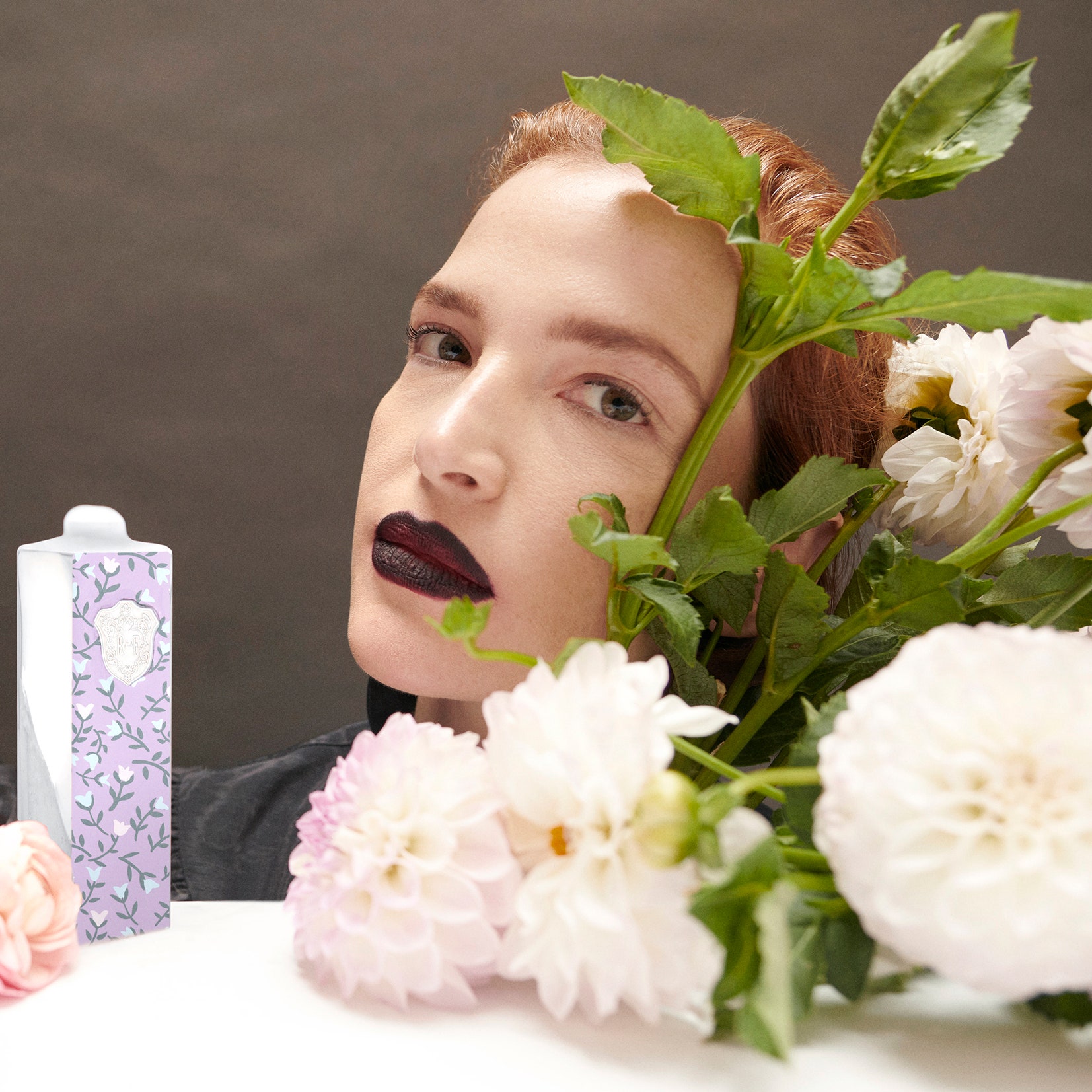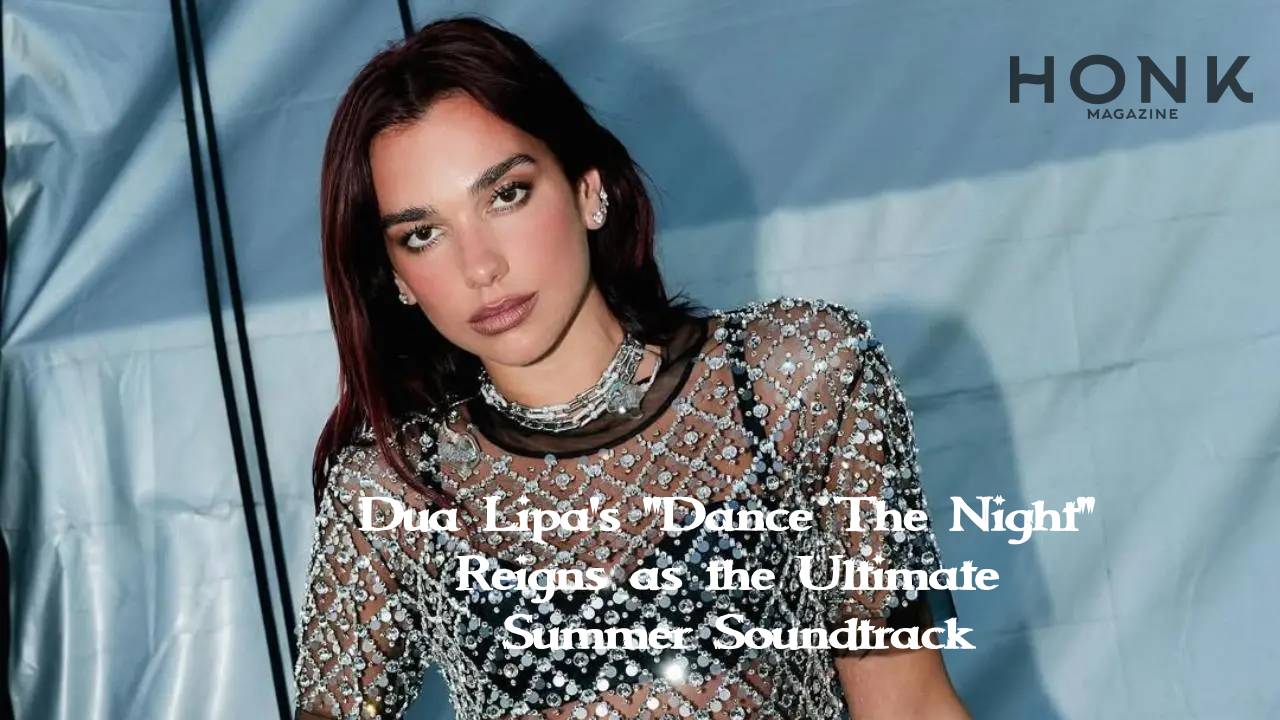Beauty
Batsheva Hay and Régime des Fleurs Collaborate on a Limited-Edition Perfume
Designer Batsheva Hay bottles her madcap sensibility with a new fragrance collaboration with Régime des Fleurs….


You can tell a lot about a person’s life from their fragrance history, and New York–based lawyer turned designer Batsheva Hay has already left quite a trail. Sweet orange blossom from Cacharel’s original eau de parfum scented much of her childhood growing up in Queens, and to this day, even a slight whiff of patchouli brings her back to Palo Alto, California, where she used to buy the earthy oil from a local farmers market as a Grateful Dead–loving undergrad at Stanford University.
Now 39 and in full command of her eponymous four-year-old brand dedicated to frilly, one-off frocks torn from the pages of Laura Ingalls Wilder, Hay is at something of an olfactory impasse. “I’m not afraid of a strong scent, but it’s been tricky for me to find one that’s exactly right,” she reveals of the impetus behind her new collaboration with the conceptual perfume house Régime des Fleurs, which translates Hay’s madcap, more-is-more approach to fashion into a maximalist’s fragrance fever dream.
“I was surprised that she really likes perfume—and that she likes so many different kinds that are totally unrelated,” admits Régime founder and creative director Alia Raza, who, after meeting Hay through friends five years ago, took her on a research trip to the perfume department at Barneys’ now-shuttered Madison Avenue flagship. “It felt like going into a fabric store and picking swatches,” Hay says of the creative process. But instead of calico prints and vintage gingham, Raza worked with smoky bergamot and a surprising water-lily note for an ethereal, aquatic quality.
“There had to be some unpredictable aspect to it,” muses Raza, who purposely shied away from the more obvious fruity floral notes that you might expect from Hay—the woman who has almost single-handedly made “cottagecore” a mainstay on red carpets and Instagram feeds, helped along by a lengthy list of supportive indie darlings and rock icons. (Courtney Love is a loyal fan.) Instead, the fragrance leans heavily on a leather-laced, heady nostalgia that reminds Hay of draping herself in her mother’s clothes and jewelry as a young girl. Her signature florals have their moment via a limited-edition custom-designed printed-glass flacon that arrives in a keepsake pouch made from a matching cotton fabric. “I love how there’s a romance to Batsheva’s clothes but also a lot of mystery when you wear them because you’re all covered up,” Raza says of Hay’s modest cuts. The look is “layered and complex,” she continues—and now atomized.
Each perfume can come with a matching pouch, featuring a custom floral pattern designed by Hay.
Régime des Fleurs Batsheva Eau de Parfum, $245, is available at regimedesfleurs.com
Artist Spotlight
How Rare Beauty Propelled Selena Gomez to Billionaire Status

Selena Gomez is a talented entertainer known for her work as a singer, actress, and producer, and she has recently reached an impressive milestone by becoming a billionaire. Much of her financial success comes from her cosmetics brand, Rare Beauty, which has quickly become popular since it launched in September 2020. The brand stands out for its dedication to inclusivity, mental health support, and clever marketing strategies.
1. The Idea Behind Rare Beauty
Rare Beauty was created to challenge traditional beauty standards and celebrate individuality. Selena wanted to build a brand that offered quality makeup while encouraging self-love and acceptance. The name “Rare” is inspired by her third studio album.
A key part of Rare Beauty’s mission is to be inclusive. When it launched, the brand offered an impressive variety of 48 shades of foundation and concealer, catering to many skin tones. The packaging also considers accessibility, making it easier for people with disabilities to use the products.
Check out this article: How Rich Is Dwayne “The Rock” Johnson in 2025?
2. Smart Marketing and Social Media Success
Selena took full advantage of her large social media presence to promote Rare Beauty. With over 400 million followers on Instagram, she shares her personal stories and shows how to use the products, which helps build a strong connection with her fans. This engagement has created a loyal customer base.
Rare Beauty also effectively utilizes social media platforms like TikTok and Instagram, gaining significant attention and making it a popular choice among beauty lovers. One of their hit products, a liquid blush, sold over 3.1 million units in just a year, highlighting the success of their online marketing.
3. Strong Financial Growth
The brand’s financial success has been impressive, generating about $350 million in revenue in 2023, a 50% increase compared to the previous year. By May 2024, Rare Beauty’s value had grown to over $2 billion, showing its strong place in the market.
This financial success has also boosted Selena’s personal wealth. In September 2024, she became a billionaire with an estimated net worth of $1.3 billion, primarily thanks to her ownership of Rare Beauty. At 32 years old, she is one of the youngest self-made female billionaires in the U.S.
Check out this article: Diddy Salutes Kanye West for Unwavering Support in Emotional Phone Call
4. Media Attention and Public Interest
The rise of Rare Beauty and Selena’s billionaire status has been widely reported in the media. A notable article from Bloomberg discussed the brand’s strategies and how they’ve resonated with consumers. The piece received extensive coverage, reaching over 250 media outlets and generating more than 1.8 billion impressions, highlighting the significant impact of her success.
5. A Commitment to Mental Health
In addition to its commercial achievements, Rare Beauty focuses on mental health. The brand has created the Rare Impact Fund, promising to donate 1% of sales to mental health initiatives, aiming to raise $100 million over the next ten years. This effort aligns with Selena’s commitment to mental health awareness, which many consumers appreciate in a brand.
Selena Gomez’s journey from entertainer to entrepreneur illustrates how she combines her values and understanding of the market with a genuine connection to her audience. Rare Beauty’s rapid growth shows a strong demand for inclusive and socially responsible beauty products. Selena’s story highlights the new wave of celebrity entrepreneurs, where authenticity and advocacy are just as important as the products they sell.
Artist Spotlight
Dua Lipa’s “Dance The Night” Reigns as the Ultimate Summer Soundtrack

Dua Lipa’s “Dance The Night” is a catchy new summer soundtrack. It evokes the sunshine, excitement of nightlife, and happiness that come with a true summer song. Co-written with the talented Mark Ronson, “Dance The Night” is a full-on experience that has quickly become the standout track of the season.
Not only is Dua Lipa a massive music star with multiple number-one hits, but this summer, she also made her acting debut as Mermaid Barbie in Greta Gerwig’s Barbie movie. It was only natural for her to be part of the film’s soundtrack, and she truly delivered. “Dance The Night” captures the fun and energy of her previous hits while turning it up with even more sparkle and good vibes, making it impossible not to dance along.
Check out this article: Mase Shocks Fans with Willingness to Visit Diddy in Prison Despite Bad Blood
“Dance The Night” was on the fast track to success. It quickly climbed to the top of the music charts, marking Dua’s fourth number-one song and adding to her growing legacy with hits like “New Rules,” “One Kiss,” and “Cold Heart.” This is about creating a lasting impact.
“Dance The Night” became the soundtrack for fun moments, whether at parties or dancing alone in your room. It’s the perfect song to play when you want to dress up, grab your friends, and dance the night away, just like Barbie does in the movie.
No summer track is complete without a great music video, and “Dance The Night” doesn’t disappoint. Featuring eye-catching visuals, impressive dance moves, and even a surprise appearance from the director, Greta Gerwig, the video captures all the exciting energy of the song. It also shows Margot Robbie’s Barbie living her best life, reminding us that having fun and being confident is always in style.
Check out this article: Jay-Z and Beyoncé Stand Firm After Kanye West’s Controversial Comments About Their Children
What makes “Dance The Night” the ultimate summer song? It’s upbeat and instantly lifts your mood, making you want to dance. Its lyrics invite you to enjoy the moment, and it succeeds on all fronts. Dua Lipa has a knack for creating both familiar and new songs. With its lively disco sound, beautiful strings, and catchy rhythm, “Dance The Night” pays tribute to the classic dance music of the past while still feeling modern. It’s vibrant, exhilarating, and simply irresistible.
In a summer filled with movies, exciting pop moments, and unforgettable times, “Dance The Night” shines as the perfect soundtrack. Whether you’re watching Barbie on the big screen or dancing under the stars, Dua Lipa has given us another fantastic song to which we’ll keep dancing even as summer ends.
-

 Artist Spotlight3 days ago
Artist Spotlight3 days agoHope Easton channels tropical mischief and charm in new single “SexyReady”
-

 Artist Spotlight3 days ago
Artist Spotlight3 days agoSweetCandy! declares self-love and defiance on “UGLY”
-

 Artist Spotlight3 days ago
Artist Spotlight3 days agoBluntBrad Jr. finds calm ambition in the laid-back shine of “It’s All Good”
-

 Artist Spotlight3 days ago
Artist Spotlight3 days agoLavien drops a heartfelt Afrofusion plea that sticks to the soul with “Nobody”
-

 Artist Spotlight2 days ago
Artist Spotlight2 days agoLana Crow turns challenges into a celebration with “Laugh With You”
-

 Artist Spotlight4 days ago
Artist Spotlight4 days agoCircleKSK ignites an anime-metal collision on “UnBreakable Turn” ft. Anya J
-

 Artist Spotlight4 days ago
Artist Spotlight4 days agoRecc explores nostalgia and inner freedom in “Where the Wild thYngs Are”
-

 Artist Spotlight4 days ago
Artist Spotlight4 days agoAnnaBelle Swift delivers gentle hope and gratitude with new single “Heaven Sent”


